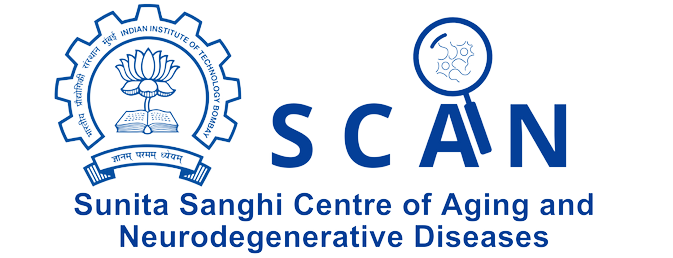Understanding Alzheimer’s Disease:
A Beginner’s Guide

Research and Future Directions
Advancements in Diagnosis
- Retinal SCAN
A recent research study published in Nature opens a new window for using retinal scans to detect early signs of Alzheimer’s disease. The study shows that tiny changes in the blood vessels of the eye, especially in deeper layers of the retina, may reflect what’s happening in the brain during the early stages of memory loss. With the help of advanced eye imaging and Artificial Intelligence (AI), this could become a simple, quick, and non-invasive way to spot Alzheimer’s early – long before symptoms become serious.
- Recently Approved Blood Test
In May 2025, the U.S. FDA granted clearance for the Lumipulse G pTau217/ß-Amyloid 1-42 Plasma Ratio, the first approved blood test to aid in diagnosing Alzheimer’s disease. Designed for adults aged 55 and older who exhibit signs of cognitive impairment, this test measures the ratio of phosphorylated tau 217 and β-amyloid 1-42 in plasma-biomarkers that correlate with amyloid plaque burden in the brain. By offering a simple blood draw rather than an expensive PET scan or invasive spinal tap, the Lumipulse G test represents a major advancement in making early Alzheimer’s detection more accessible, less invasive, and faster, ultimately supporting timelier interventions and better patient outcomes.
Advancements in Treatment
- Deep Brain Stimulation
Deep Brain Stimulation (DBS) remains a robust and well-established therapy for modulating widespread brain circuits. Hence, it might play a major role in managing Alzheimer’s disease in a fraction of patients. Preclinical studies in Alzheimer’s disease models demonstrated promising effects including restoration of memory, and increasing hippocampal volume. Based on this, clinical trials of targeting the fornix have been initiated in Alzheimer’s disease patients. Phase I and II trials have shown that this approach is safe and may benefit in some patients, and a phase III trial is currently ongoing. However, the early findings of a pilot trial suggested that DBS is most effective in patients with mild Alzheimer’s disease. Therefore, DBS is anticipated to be the preferred technique to advance Alzheimer’s disease management.
Recently Approved Drugs
- Lecanemab
- FDA-approved in 2023 (yet to be approved by FDA in India). A monoclonal antibody designed to clear amyloid-β plaques from the brain.
- Mechanism: Targets and neutralizes soluble and deposited amyloid-β aggregates.
- Donanemab
- USA FDA-approved in 2024 (yet to be approved by FDA in India). Like Lecanemab, this anti-amyloid monoclonal antibody has shown promise in clinical trials for slowing cognitive decline in early stages.
Drugs under development
- Tau Protein Inhibitors
Drugs like Semorinemab target tau tangles within neurons, a hallmark of advanced Alzheimer’s disease. - Gamma-Secretase and Beta- Secretase Inhibitors
These aim to block enzymes involved in the production of amyloid-β. However, past trials have faced safety concerns. - Neuroinflammation Modulators
Experimental treatments, such as Sargramostim, focus on reducing inflammation in the brain to slow disease progression. - Neuroprotective Therapies
Drugs targeting mitochondrial dysfunction and oxidative stress, such as MitoQ, are being explored

